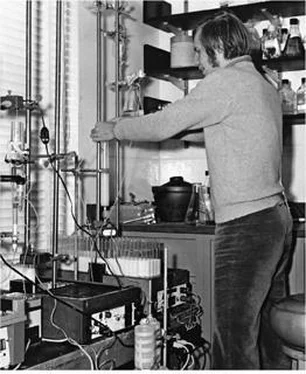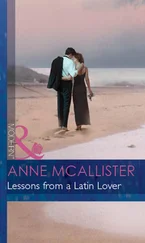James Watson - AVOID BORING PEOPLE - Lessons from a Life in Science
Здесь есть возможность читать онлайн «James Watson - AVOID BORING PEOPLE - Lessons from a Life in Science» весь текст электронной книги совершенно бесплатно (целиком полную версию без сокращений). В некоторых случаях можно слушать аудио, скачать через торрент в формате fb2 и присутствует краткое содержание. Жанр: Биографии и Мемуары. Описание произведения, (предисловие) а так же отзывы посетителей доступны на портале библиотеки ЛибКат.
- Название:AVOID BORING PEOPLE: Lessons from a Life in Science
- Автор:
- Жанр:
- Год:неизвестен
- ISBN:нет данных
- Рейтинг книги:5 / 5. Голосов: 1
-
Избранное:Добавить в избранное
- Отзывы:
-
Ваша оценка:
- 100
- 1
- 2
- 3
- 4
- 5
AVOID BORING PEOPLE: Lessons from a Life in Science: краткое содержание, описание и аннотация
Предлагаем к чтению аннотацию, описание, краткое содержание или предисловие (зависит от того, что написал сам автор книги «AVOID BORING PEOPLE: Lessons from a Life in Science»). Если вы не нашли необходимую информацию о книге — напишите в комментариях, мы постараемся отыскать её.
AVOID BORING PEOPLE: Lessons from a Life in Science — читать онлайн бесплатно полную книгу (весь текст) целиком
Ниже представлен текст книги, разбитый по страницам. Система сохранения места последней прочитанной страницы, позволяет с удобством читать онлайн бесплатно книгу «AVOID BORING PEOPLE: Lessons from a Life in Science», без необходимости каждый раз заново искать на чём Вы остановились. Поставьте закладку, и сможете в любой момент перейти на страницу, на которой закончили чтение.
Интервал:
Закладка:
At the Gordon Conference, we learned that Sydney Brenner would soon be going to Caltech to do experiments with Matt Meselson that might independently prove the existence of messenger RNA. In April, Francois Jacob came to Cambridge to talk with Sydney and Francis Crick and persuaded them too that ribosomes by themselves did not carry genetic instructions for ordering amino acids in protein synthesis. To confirm the hunch, Sydney soon proposed to Meselson that his ultracentrifuge tricks should let them see new T4 mRNA molecules bound to ribosomes made prior to phage infection. By late July, Sydney triumphantly returned to Cambridge with his prediction confirmed. Only later, when Sydney told us about his Caltech results,
did he learn the details of Bob Risebrough's independent demonstration of mRNA.That summer of 1960, the lab was graced with several lively Rad-cliffe students who wanted technician jobs so they could stay around Harvard Square for the summer. Particularly fun to have about was the fetching Franny Beer, the red-haired daughter of the equally red-haired Sam Beer, Harvard's resident expert in American politics. I first knew Franny from my Biology 2 lectures, in which she regularly sat smiling in one of the front rows. Spotting her soon after in the Biolabs, I learned that she was very fond of dogs and keen to be a vet. We both revealed ourselves to each other as loyal Democrats, but at first I couldn't share her enthusiasm for John Kennedy. I still hated his father, Joe, for his past German sympathies. Earlier, in June, Franny and I had watched the Harvard commencement to see her hero march by as an overseer. Like Eleanor Roosevelt, I was then still rooting for Adlai Stevenson to again be the Democratic candidate. Franny followed her father's hopes that John Kennedy, a much stronger potential nominee, would prevail at the convention. That fall Franny, who was mad about rock and roll, brought me to a late gathering of undergraduate rock fans. I was never so out of place, realizing that I should best cherish Franny as a surrogate kid sister.

Wally Gilbert in my lab, summer 1960
In the fall, Diana de Vegh was no longer available for Henri IV lunches. John Kennedy's now active campaign for the presidency had put her previous year's studies to be an Arabist into proper perspective. Now she was doing campaign work elsewhere. But into the lab came the Radcliffe senior Nina Gordon, doing an undergraduate project and seeing that I got invited often to her Radcliffe house, where I could feed my hopes of finding a suitable blonde. Increasingly the
presidential campaign dominated emotions at Harvard, and I went to watch the debates between Kennedy and Nixon on Alfred and Virginia Tissières's TV set in their big apartment on Sparks Street. They had lived in those spacious early-twentieth-century rooms since their marriage two summers before, and the same apartment would soon be occupied by Matt Meselson and his very new wife, Katherine. Matt and Katherine had met over the summer in Colorado at the Aspen Music Festival, where Katherine was studying the flute.By early September I was very much a Kennedy partisan, hating Nixon even more and excited that so many Harvard professors were working as Kennedy advisors. Following the public opinion polls with increasing apprehension, I followed the election night cliffhanger with Alfred and Virginia. The Dotys then were part of an older Harvard group close to the Kennedy campaign. Too tired to stay up till Kennedy's victory was ensured, I took comfort in knowing that my mother had long worked for the Democratic political machine, which would not let Kennedy lose in Illinois.
The weeks that followed Kennedy's victory were in no sense anticlimactic. The main question in the air was who from Harvard would be called to be part of the new administration. Arthur Schlesinger's departure to help Kennedy as a speechwriter was virtually taken for granted. Everyone was equally pleased by the selection of John Kenneth Galbraith as ambassador to India and Edwin Reischauer as ambassador to Japan. Most excitement came from McGeorge Bundy's nomination as the president's national security advisor with West Wing offices. For his chief deputy Bundy further raided the Harvard faculty, picking his friend the economist Carl Kaysen.
Before taking office, Kennedy saw fit to resign from Harvard's Board of Overseers, promising to attend its January meeting just prior to his inauguration. For several weeks I anticipated having him listen to me speak, since I had been asked with Frank Westheimer to brief the overseers about new opportunities for research in molecular biology and biochemistry. But our president-elect did not get to Harvard that day, having more pressing matters to attend to. The occasion, however, gave me my last opportunity to speak to McGeorge Bundy as dean. He had raised my curiosity in the weeks before by asking me to
come and see him. So I half dreamed that I also might be asked to move to Washington. At the last moment, however, his aide Verna Johnson phoned me to cancel the appointment. Taking me aside at the overseers’ meeting, Bundy wanted to personally tell me the good news that I was being promoted to full professor as of July 1. He then mischievously added that no higher academic accolade could ever come my way.Remembered Lessons
1. Teaching can make your mind move on to big problems
Eminent researchers who revel in trivial or nonexistent teaching loads may be availing themselves of a luxury no thinker can well afford. When I'm not challenged by an immediate need to make sense of incompatible observations, my mind too often runs slowly. A very strong incentive for coming to grips fast with unexplainable experiments is the need to lecture about them. For this the best audiences are advanced undergraduates or graduate students, who know enough to have reactions that may spark a flash of insight. In the early 1970s, when lecturing about DNA duplication in such a fog of uncertainty, I suddenly saw why viral DNA molecules have redundant ends that become linked during their replication processes. The idea that this was a device to copy their ends was too pretty to be wrong.
2. Lectures should not be unidimensionally serious
It is no fun to either give or listen to hourlong talks that provide nonstop flows of dry facts or even ideas. Presentations of all kinds should alternate easy-to-understand and familiar material with the messages that are more difficult to assimilate. At Harvard I tried to put a human face on experiments, adding asides about personalities and letting my listeners put themselves in the place of the experimenter, as eventually they would need to do.
3. Give your students the straight dope
In my Biology 2 lectures in the early 1960s, I regularly gave one titled “Against Embryology,” since its main point was that multicellular organisms were best put on the back burner until we understood the basic nature of life by studying single-celled bacteria. The early sixties were not a propitious time, for example, to go to the Marine Biological Laboratory at Woods Hole to study sea urchins. Those who went instead to Cold Spring Harbor to pursue genes within bacteria would have much brighter futures. This was not a message that most of my fellow biology professors agreed with, and many of them thought it inappropriate for me to announce it to my students. But to sugar-coat science that is going nowhere ill prepares students for their futures.
4. Encourage undergraduate research experience
If one or more lab benches were free, I automatically accepted bright undergraduates keen to do research under my supervision. Often they were undecided between medical and graduate school and benefited from seeing the differences between scientific and clinical challenges. Being part of a research group, moreover, let them see that personalities often are as important as brains in pushing forward the scientific frontier. It is also true that a certain kind of aptitude is required to do successful research. You frequently spot individuals in labs whose first-rate talents may never come out through exams. They come alive only when they are challenged with “new unknowns” as opposed to “old knowns.”
Читать дальшеИнтервал:
Закладка:
Похожие книги на «AVOID BORING PEOPLE: Lessons from a Life in Science»
Представляем Вашему вниманию похожие книги на «AVOID BORING PEOPLE: Lessons from a Life in Science» списком для выбора. Мы отобрали схожую по названию и смыслу литературу в надежде предоставить читателям больше вариантов отыскать новые, интересные, ещё непрочитанные произведения.
Обсуждение, отзывы о книге «AVOID BORING PEOPLE: Lessons from a Life in Science» и просто собственные мнения читателей. Оставьте ваши комментарии, напишите, что Вы думаете о произведении, его смысле или главных героях. Укажите что конкретно понравилось, а что нет, и почему Вы так считаете.












